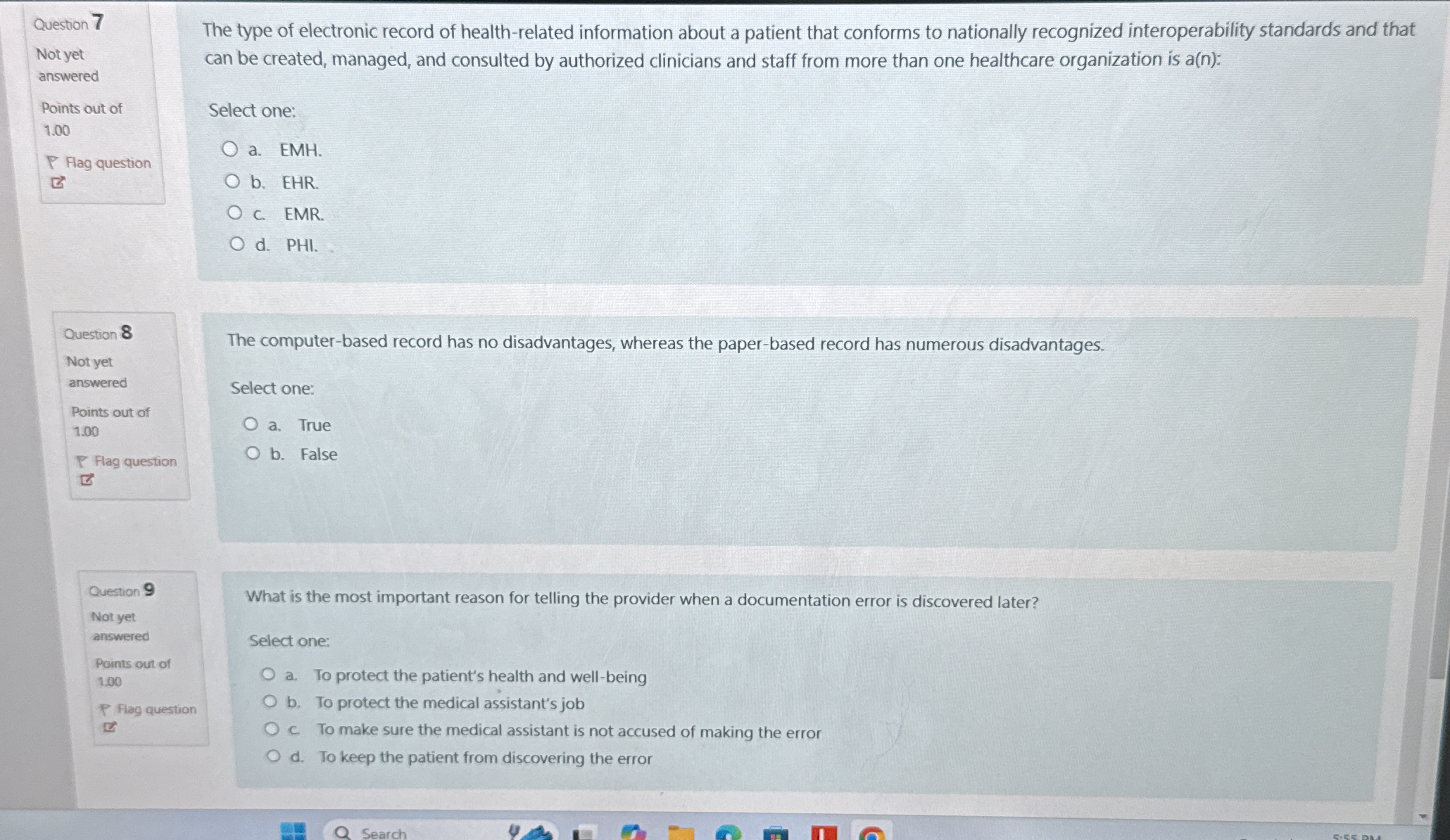The type of electronic record of health-related information about a patient that conforms to nationally recognized interoperability standards is: a. EMH, b. EHR, c. EMR, d. PHI. Th... The type of electronic record of health-related information about a patient that conforms to nationally recognized interoperability standards is: a. EMH, b. EHR, c. EMR, d. PHI. The computer-based record has no disadvantages; true or false? What is the most important reason for telling the provider when a documentation error is discovered later?

Understand the Problem
The question is asking for the type of electronic health record that adheres to interoperability standards and which can involve multiple healthcare organizations. It also asks about the disadvantages of computer-based records and the reasons for reporting documentation errors in a healthcare context.
Answer
EHR; False; Protect patient's health.
The correct type is EHR. False, computer-based records have disadvantages. The most important reason is to protect the patient's health and well-being.
Answer for screen readers
The correct type is EHR. False, computer-based records have disadvantages. The most important reason is to protect the patient's health and well-being.
More Information
An Electronic Health Record (EHR) is more comprehensive than EMR, allowing data to be shared across different healthcare organizations. Computer-based records can have issues such as security risks. Informing about errors ensures patient safety.
Tips
Confusing EMR with EHR is common; remember, EHR is more widely interoperable.
Sources
- Electronic Health Record (EHR) - brainly.com
- EHR vs. EMR Definition, Benefits & EHR Usage Trends - practicefusion.com
AI-generated content may contain errors. Please verify critical information